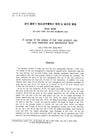Counseling Regarding Paternal Exposures: Can We Do Better?
March 2017
in “
The Australian and New Zealand journal of obstetrics and gynaecology
”
TLDR We need better information on how fathers' exposures affect pregnancy.
The study reviewed 253,103 calls to MotherSafe from 2000 to 2015, finding that 1,072 calls (0.4%) concerned paternal exposures, primarily related to immunomodifiers (19%), hair loss products (11%), and antidepressants. It concluded that paternal exposures were a minor but significant concern, with existing consumer and product information often being deficient or misleading. The study emphasized the crucial role of Teratogen Information Services like MotherSafe in offering evidence-based information to consumers and healthcare providers.






